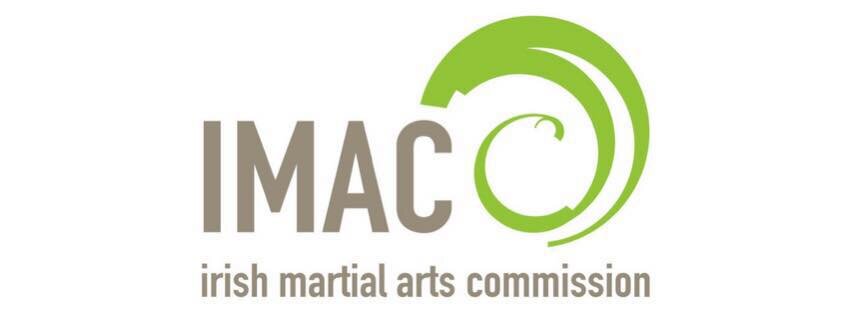Aikido Ireland is the IMAC advisory board for Aikido in Ireland.
For more information on Aikido Ireland please visit their website: www.aikidoireland.ie
Aikido is a non-violent Japanese Martial Art and a discipline for developing an integrated sense of ourselves, both mentally and physically. Aikido defence techniques, which are primarily harmonising throws and locks, are based on receiving the attacker with compassion and blending with the power of the attack to neutralise it.
The techniques are smooth and circular and, ultimately serve to expose the pointlessness, and unkindness, of resorting to violence as a means of resolving conflict. To move well and to perceive and control the attacker completely, the Aikidoka learns to create and maintain a calm, alert and balanced state of mind, body, energy and spirit.
The true spirit of Aikido comes into its own in the internal struggle we all inevitably face as we mature and harmonise with the world around us. The battle of Aikido is hidden within the quest to know ourselves and not in a desire to dominate others. Through this inner process most Aikidoka are led to question and explore their own attitudes to power, dominance and violence. In this sense Aikido is radically different to other martial Arts.
The exploration of these possibilities is the essence of the Quest undertaken by those of us who have chosen AIKIDO as our Way. Aikido can truly be called a new Martial Art when measured against the hundreds of years development that shaped Japanese Martial culture, up to the turn of the 20th century. The blossoming of Aikido into an Art of non-violence, from it roots in Daito Ryu Aikijutsu, came at a time when Japanese society was being forced to reassess it relationship with militarism, (following the Japanese surrender in world war two). Despite its newness, Aikido remains intrinsically tied into that historic culture as it attempts to encapsulate many of the crucial lessons learnt, at great cost in human lives, during that vicious period.
Luckily, we do not have to live through such madness ourselves to learn from their experiences. We too are living in a new time. Today violence takes more subtle and invisible forms than the purely physically threats of the past. The widespread and skilful abuse of power & authority, is a most serious example of violence in our present world. The models of Aikido hold equally true in this arena and offer us new ways of confronting such abuses. Similarly the role of men in the perpetuation of violence in our society is now more widely understood and the Martial Arts have an important role to play in recognising and neutralising part of this process. Physically, Aikido is the distillation of the finer principles and techniques of various Martial Arts, primarily Daito Ryu Aikijutsu. A variety of locks and throws around a central focus of harmonising, rather than clashing, with incoming attacks, creates the foundation of recognisable Aikido. It then takes the lessons of Zen stillness, the quiet centre (hara) being the source of all action, and draws further on breathing principles as a focus of co-ordination of movement, in both mind and body.
Furthermore, Aikido sets an ethical requirement insisting that the practitioner sets out to neutralise the aggression of the attacker and not the attacker. Aikido is marking a new age by extending the options of conflict beyond the old boundaries of Fight or Flight. Aikido is both of these and, at the same time, neither. It is offering a third possibility, a way of confronting aggression without having to become aggressive oneself. The movements of Aikido are graceful and, at times, even beautiful. They are soft and flowing, yet wrapped in a whirlwind of active intent. Training can be fast and demanding, yet consideration for the well being of one’s partner, and one’s self, is never lost.
Contact Details
Aikido Advisory Board Representative: Brendan Dowling
Tel: 0872940735
Email: president@imac.ie
Web: aikido.irish

